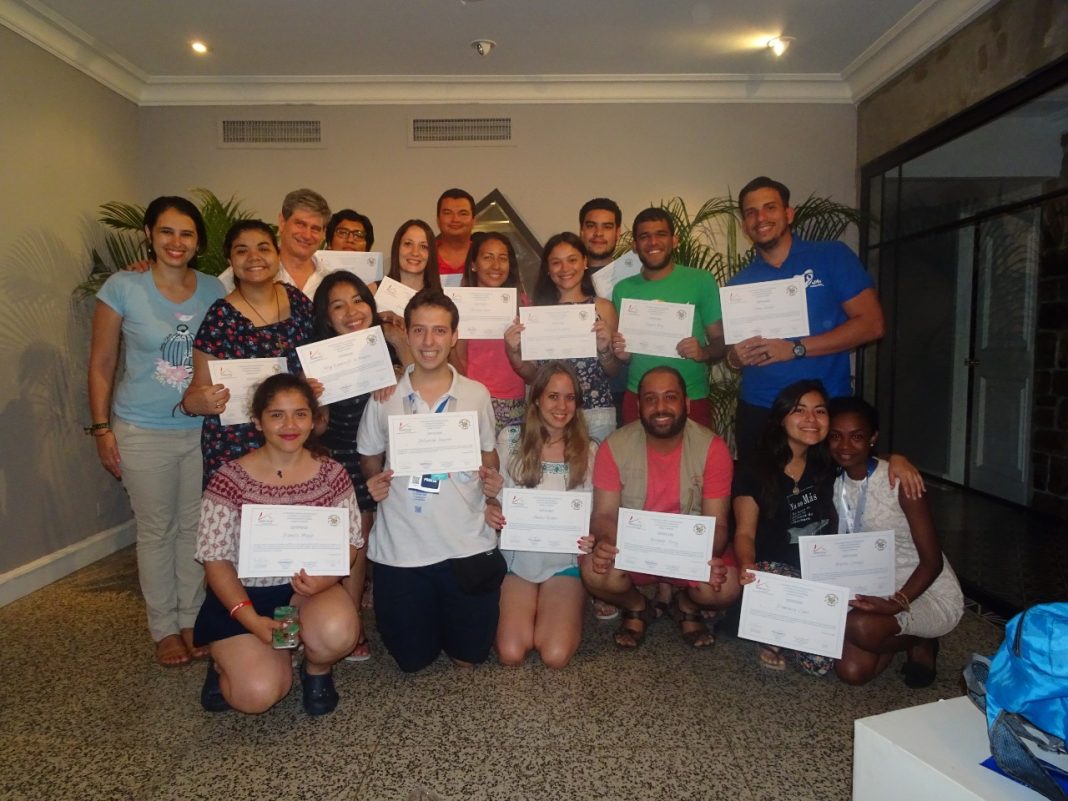This is some of the feedback received after an intensive weeklong residential boot camp on communications which approximately 50 participants from across the Caribbean Sea have attended each year for the past 25 years. During the August vacation, the Caribbean School for Catholic Communication (CSCC) offers this course at a retreat house in Trinidad.
It all began in 1993 when The Most Rev. Anthony Pantin, then Archbishop of Port of Spain (POS), recognised the need for media training in the region called together a team to develop a communications plan. CSCC was initiated in 1995.
In those early years, facilitators were hand-picked from across the globe and flown in to share their expertise with the Caribbean novices. As media experience developed in the region, the training was passed on to Caribbean and local practitioners.
CSCC is a collaborative effort administered by Living Water Community in partnership with the Institute for Pastoral Initiatives at the University of Dayton, Ohio (USA) and the acknowledgement of The Most Rev. Charles Jason Gordon, Archbishop of POS. Sr. Angela Ann Zukowski, MHSH, D.Min., University of Dayton, has been an integral part of this initiative over the years, and Trinity TV has provided technical and teaching support.
In 2010, the CSCC Administrative Team applied the theme “Forming Missionary Disciples in a Digital Age” for identifying its mission and vision. They see themselves as directly linked into the Aparecida Document of the Latin American and Caribbean bishops (2007) which animates the annual evolving sub-themes for their conversations. Each year they strive to identify a sub-theme that is in step with the Church’s emerging pastoral issues and concerns. For example, in 2019 which was also the 25th anniversary of CSCC, the focus was on Laudato S’i and the Amazon Synod and the theme was S.P.L.A.S.H. (Save and Protect our Land, Air, Sea and Home). Guest presenters are invited according to the theme chosen and participants use it to guide their digital productions. An environmental specialist on coral reefs presented the situation of the effects of global warming and pollution on the Caribbean Sea.
In 2013, a new collaborative learning design was created for the School. Instead of separating the groups into Audio, Video, Print and Social Media, as had been the norm, they recognised that modern times needed a multimedia approach. They literally flipped the style of the programme by introducing new learning styles and experiences related to the learning trends of the 21st century – incorporating TED-style presentations (15- 30 minutes vs one hour lectures), bringing in presenters virtually, and creating more practical hands-on, selfdirected learning where small groups would do online research together and teachers would become consultants and one-on-one mentors.
The participants engage in the one-week programme with attentive interest, open-mindedness for alternative creative applications and a deeper appreciation for working collaboratively to realise the vision and mission of the church in the digital culture.
The pandemic put a pause on the School for 2020 but plans are underway to offer an exciting virtual alternative in 2021. www.cscctt.org


